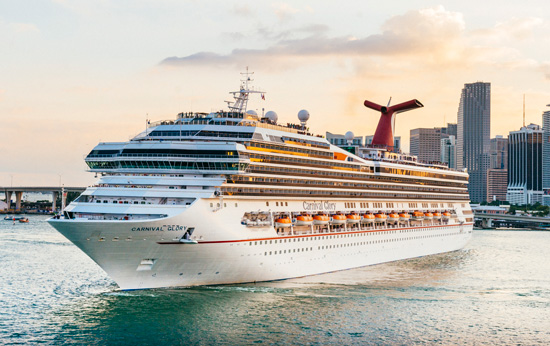Mediating maritime matters
Passengers injured on a cruise must file suit in a specific jurisdiction, but their cases can be mediated anywhere
Having mediated several hundred maritime cases, I read Kevin Conlogue’s article in the November 2017 Advocate, “Maritime premises liability? Not really” with considerable interest. I would amplify his presentation as follows:
General Maritime Law of the United States applies to persons aboard a ship operated by an American-based cruise line no matter where in the world the client sustained injuries. Attorney Conlogue correctly points out that although the statute of limitations generally may be three years, the passenger’s ticket of passage generally will limit the time for filing to one year and further require that written notice of the claim be provided to the cruise line within six months of the date of injury. This notice provision is usually adequately provided by the fact that the injury itself is reported when the plaintiff seeks medical care aboard ship.
Under maritime law a cruise line owes passengers a duty to exercise reasonable care under the circumstances. Passengers who are injured may recover for negligence. (Kermarec v. Compagnie Generale Transatlantique (1959) 358 U.S. 625, 628.) However, that duty is increased for embarking and disembarking passengers and affected by uniquely maritime activities. The issue of causation is “feather light.”
Under the Jones Act, 46 U.S.C. Section 30104, an injured seaman has three basic rights:
The right to receive Maintenance and Cure. Any injury or illness that occurs while in the service of the vessel is covered. Maintenance is a daily payment to help with basic daily living expenses. Cure refers to the employer’s obligation to provide the medical care needed to recover from the injury or to reach the status of maximum medical cure. A shipowner who willfully and wrongfully withholds these benefits may be liable for attorney’s fees and punitive damages.
Unlike the typical personal injury of an employee who is limited to statutory recovery under Workers’ Compensation Schedules, the Jones Act allows the injured seaman to sue his employer and recover damages for negligence.
General Maritime Law provides that an injured seaman can recover damages from the ship owner for unseaworthiness, which refers to a dangerous or defective condition aboard the vessel, without the necessity of proving negligence. This is because the defendant has an absolute duty to furnish the seaman with a reasonably safe place to work and reasonably safe tools and equipment.
As the author pointed out, every cruise line has a location where a lawsuit must be filed as is listed in the contract of passage. Currently there are three main jurisdictions for filing cruise injury cases: Seattle, Florida, and Los Angeles. Holland America and Windstar Cruises cases must be filed in Seattle. Carnival Cruise Lines; Royal Caribbean; Norwegian Cruise Lines; Celebrity Cruise Lines; and Disney Cruise Lines have to be filed in Florida. Princess Cruise Lines; Crystal Cruises and Cunard Line are venued here in Los Angeles. Most of these cases are handled by lawyers who are certified by the State Bar of California as specialists in Admiralty and Maritime Law and are admitted to practice law in this state.
While the case must be tried in the specified jurisdiction, it does not require that the plaintiff attend a mediation in that venue or at all. While generally preferable to have the client attend those proceedings, difficulty in travel for injured seamen or aging passengers results in a number of cases being mediated wherein the plaintiff is only available via telephone. Furthermore, mediation need not even be conducted where the case is venued. Illustratively, by agreement of the parties, I have mediated cases in Los Angeles although the litigation was filed in other jurisdictions. In another matter involving a large number of passengers all injured in the same incident, I was selected to mediate a group of related cases in New York where the plaintiffs all lived, and conducted the proceedings there over a period of three weeks.
Lawyers who defend these cases are almost always experts and tend to specialize rather exclusively in Maritime Law. Insurance representatives for the Los Angeles-venued cases are local although coverage may reside in London. These claims representatives also are very capable specialists in negotiating these cases on behalf of the defendants.
Sanford Gage

Sanford Gage is a Former President of CAOC; Former President of CAALA; Trial Lawyer of the Year (CAALA); Co-Author of the book: “Insurance Bad Faith” (Matthew Bender); was a founder of Advocate Magazine; graduated from UCLA and UCLA School of Law; Law Review; Adjunct Professor Trial Practice – Pepperdine School of Law; member of ABOTA; wrote the Ethical Guidelines: “Code of Professionalism” for CAOC; participated in over 40 appellate cases; has authored more than 200 legal articles and has an extensive mediation practice.
Copyright ©
2025
by the author.
For reprint permission, contact the publisher: Advocate Magazine

